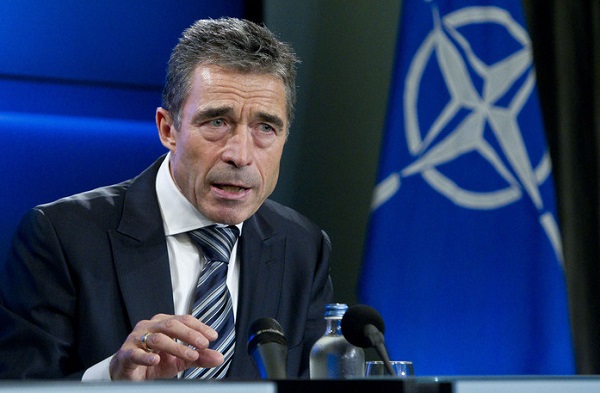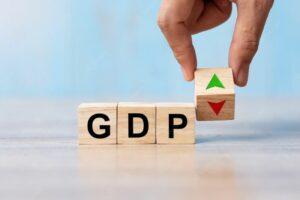The text below is a series of fragments from the interview that former NATO Secretary General Anders Fogh Rasmussen gave to CRONICILE Curs de guvernare magazine – at a time when the North Atlantic Alliance is facing serious political confrontations between allies.
Against the background of Russia’s aggressiveness in the Black Sea region, China’s military rise and the slippage of NATO’s second-largest member (Erdogan’s Turkey), the issue of a European army divides the West.
***
The NATO-Russia founding act is no longer valid: it is a context different than the one in which it was signed;
America First, on the one hand, and North Stream II, on the other hand, weakened the Alliance’s political force;
in the coming months and years, NATO will be strengthened in the Black Sea – Russia’s intentions are now evident;
China’s autocracies can be counterbalanced by an understanding of authentic democracies:
There are some ideas raised through CRONICILE Curs de Guvernare by Anders Fogh Rasmussen, former NATO Secretary General, the man who has one of the best perspectives of the Alliance, obtained in the very complex moment of the reappearance of the Cold War.
*
CRONICILE:
What is the future of the transatlantic relationship at a time when attitudes like „America first”, but also increasingly „Europe in the first place” seems to become the new normality?
Anders Fogh Rasmussen:
Transatlantic cooperation is at a historic minimum, partly due to policies like Nord Stream 2.
I hope to realize that we still have common values and interests and that the fragmentation of the transatlantic relationship is only for the benefit of autocrats and dictators.
Today’s challenges are in part created by European policies such as Nord Stream 2, partly by America first attitude, which threatens to isolate Washington and diminish the global influence of the United States.
CRONICILE:
The first Secretary General of the Alliance, Lord Ismay, defined NATO’s rationale of being as „keeping the Russians out, Americans in and Germans down„. How do you see the role of NATO 70 years after its establishment?
Anders Fogh Rasmussen:
If I am to formulate the same way, I would sum up NATO’s role as „keeping the Russians out, Americans in and Europeans involved.” This is how I see the role of the Alliance today.
(…………)
CRONICILE:
What are the consequences of a reluctant US president’s actions against Article 5 and who seems to question the will to defend a member state such as Montenegro?
Anders Fogh Rasmussen:
I would formulate this way:
From a military point of view, NATO has strengthened in recent years. But from a political point of view NATO has been weakened.
In fact, NATO is stronger against the background of increased investment European states made in defence since 2014. At the same time, NATO has also been strengthened by the fact that European allies and the United States have deployed troops to strengthen territorial defence in the Eastern part of the alliance. From this perspective, such trends show that we are heading in the right direction.
But from a political point of view, the alliance has been weakened by the reckless statements of the United States President who expressed his doubts about his commitment to Article 5.
It is a dangerous message because it might tempt Putin and other autocrats to test our determination. However, I believe that eventually, if Russia would attack a NATO state, at that moment the alliance would react decisively.
CRONICILE:
Is it the time for a wider NATO presence in the Black Sea? After 2014 the focus was mainly on the northern part of the eastern flank.
Anders Fogh Rasmussen:
In my opinion there is no doubt that the Black Sea will play an increasingly important role in the future. It is an area which is increasingly becoming an area of interest for Russia and this is also showed by the start in the annexation of Azov Sea, at the end of last year.
NATO has begun to organize training and patrol missions in the Black Sea. I believe that the presence in the Black Sea will continue to be strengthened in the coming months and years.
CRONICILE:
Has the time come to go beyond the NATO-Russia Founding Act towards the deployment of significant permanent forces in the East?
Anders Fogh Rasmussen:
We must consider the following: The NATO-Russia Founding Act was adopted in 1997 within a very different security environment.
The statements from the NATO-Russia Founding Act are certainly grounded in the security environment that was prevailing at that time – a time when we considered and saw Russia as a partner. Today we must realize that Russia is not a partner but a strategic adversary.
Moreover, it is Russia that violated first the NATO-Russia Founding Act, not NATO. There is a strong argument for a permanent presence in Central Europe in the direction proposed by Poland, but such a measure should be coordinated at the level of the Alliance.
At the same time, Europe can take additional measures to defend and secure the eastern flank, such as the development of strategic transport capabilities within NATO territory, as well as the development of a military Schengen area in order to deploy forces much faster. Our capacity to mobilize quickly is essential.
(…………………… ..)
CRONICILE:
Are you worried about the recession of democracy inside the Alliance, the illiberal tendencies we see in countries such as Hungary and Turkey? How can these be counterbalanced?
Anders Fogh Rasmussen:
Of course, such trends are worrying. At the same time, we need to be realistic and treat these member states as equal, not to talk down to them, because such an attitude will push them away even further.
Instead of discussing of pushing Turkey out of NATO, we should have a dialogue with Ankara. I am a believer in the continuation of the dialogue, not in punishing these countries.
Any punitive measures from international institutions will end up by strengthening autocratic trends in the respective countries.
(………………… ..)
***










